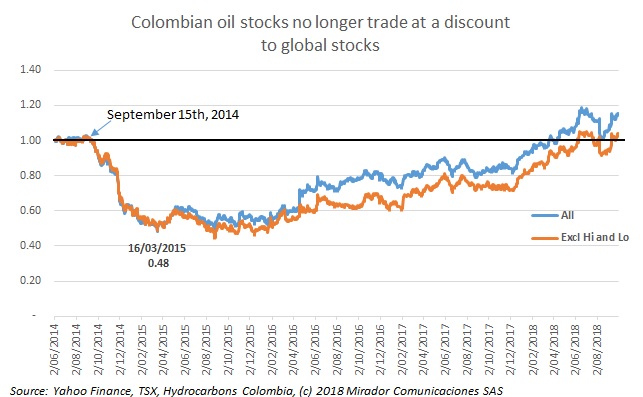
Oil prices were up in 3Q18 but investors in Colombian-focused stocks seemed to shrug that off. Only Ecopetrol (NYSE:EC) and Gran Tierra (TSX:GTE) were up over the quarter.
The reopened debate about fracking in Colombia reminded me, once again, that we live in a world where nothing is true.
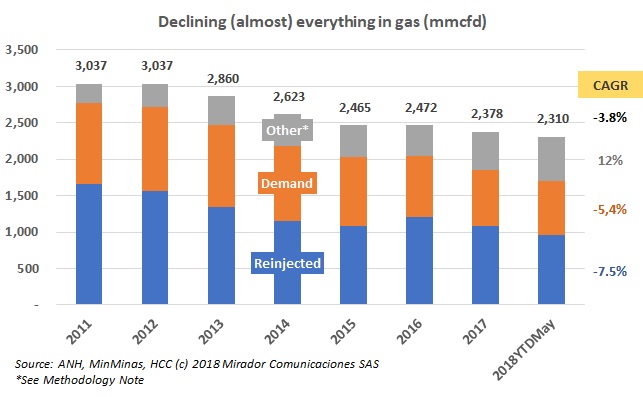
Based on a reader question, we decided to look at the available data on reinjected gas. That did not turn out to be easy, at least going back in time, (See Methodological Note) but did allow us to look at some other interesting questions like solving the looming supply gap.
At the recent ACIEM Enercol Conference, there was a very interesting debate about the second regasification plant. Even I have to admit the bureaucrats made their case.
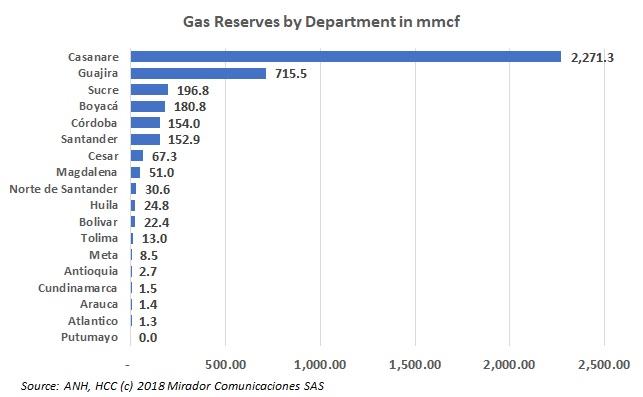
Last week we showed a number of graphs about oil reserves. This week we have the same charts but for natural gas.
As we noted a few weeks ago, the Colombia-Canada Chamber of Commerce’s Mining and Energy Committee prepared a set of recommendations for María Fernanda Suárez, the new MinMinas. These were delivered to her at a private meeting in Cartagena. We have translated the full document and obtained the Committee’s permission to publish it.
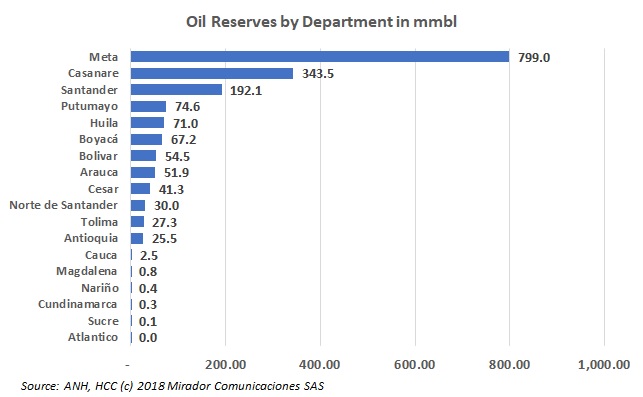
While searching for something else, our Analyst stumbled upon an update of the ANH’s oil reserves by department. He came up with some interesting graphs.
One of the hardest editing problems I have occurs whenever we have to write about security issues associated with former Farc guerrilla. The problems occur because of differences between Spanish and English, but mostly because of a ‘what-do-we-call-them’ issue. However, the real security issues are far bigger than any language challenges we might have.
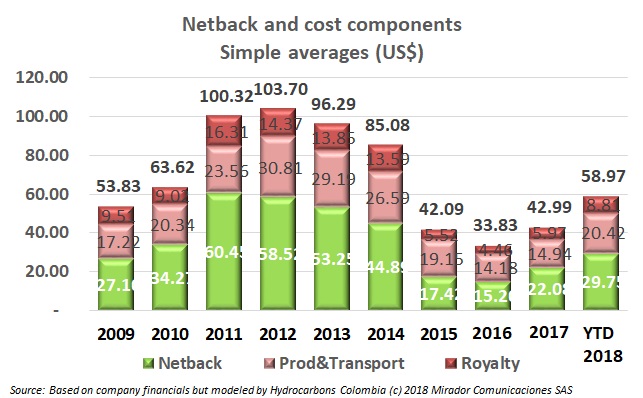
Our Analyst complained that we had taken his usual space in the newsletter for our various end-of-Santos-government reviews. (Normally he complains because he has no idea what to write about come the Friday deadline, so this was a first.) He was especially concerned because he had good news to report.
This week the Duque government’s new hydrocarbons team was finalized. What will they do? What should they do?